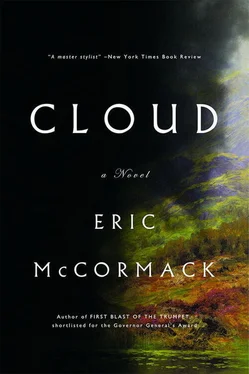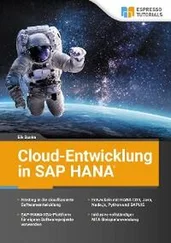I became the most itinerant of teachers, travelling between assignments mainly on small planes, or diesel trucks, or occasionally on narrow-gauge railways that had been converted from use in sugar-cane fields to the task of transporting ore. But the most relaxing mode of travel for me was in dugout canoes. I’d just lie back and rest as I was paddled along muddy jungle rivers. Like my earlier journey on those roads in Africa, I imagined these primal forests sliding by on either side like bookcases in some endless library filled with lookalike books.
As for the types of mines: most were open-pit or strip mines because the minerals were near the surface and tunnelling wasn’t required. Hundreds of miners would crawl around, day and night, picking at the red earth in the broiling heat like flies on a massive sore.
Some of the mines, however, were underground. The miners who worked in them were of that universal type I’d seen on their way to and from work in Duncairn. They were small, wiry men doing a dangerous job that made them a close-knit group. But to the owners, the men’s safety seemed of little importance, so deaths and maimings were daily affairs.
No matter the type of mine, the administration offices and the supervisors’ bungalow residences all had the same cinderblock walls and corrugated tin roofs. As a visiting tutor, I was usually allocated a room in one of these bungalows for the length of my visit.
In proximity to each mine, a shantytown of sorts would spring up, consisting mainly of long bamboo huts that were split into flimsy apartments for the married men and dormitories for those without wives. Hospitals and churches were really just adaptations of the same bamboo structures, as were the entertainment establishments: movie theatres, brothels, liquor stores, cockfighting rings, and mescaline dens.
I sampled some of the offerings now and then.
THAT FIRST CONTRACT passed slowly, and I soon began to wonder if I was the right kind of man for this work. I didn’t mind the teaching, but I couldn’t help being afraid I might die of some exotic illness, as so many did in this part of the world. If so, my body would probably be buried in a shallow grave in the jungle, where it would be disinterred and ripped apart by nightmare creatures. Soon the weeds would protrude from the gaps in my bare, gnawed ribcage.
The thought of such an end led me on jungle evenings, to the accompaniment of a billion chirruping insects, to write a journal for the first time in my life. In it, I recorded the true story of myself: my upbringing in the Tollgate, the violent deaths of my parents, my love for Miriam Galt and the breaking of my heart in Duncairn, my subsequent illness — or whatever it was — in Africa, my voyage of recovery on the Charybdis , then this present work as a tutor. If I were to die in obscurity, someone might stumble on the journal and know I once existed. The thought of that consoled me to such an extent that I might have resigned myself to my lot.
Then Gordon Smith appeared.
I’d just spent several weeks at the La Mancha gold mine conducting conversation tutorials when he arrived, late one afternoon, in a company jeep used to bring passengers from the little airfield that had been slashed out of the jungle a few miles away. From the open-walled hut where I held my class, I saw the mine’s general manager get out of the jeep, then this other man.
He looked about fifty, of middling height, with thin, grey hair swept back. There was something hawkish about his face, with bent nose, noticeable eyebrows, and eyes that took in everything as he walked past — including my little classroom and me, looking out at him. He had a neatness about him, not just because of his spotless tropical whites but in his entire bearing. In this part of the world where everything tended to be sweaty and sloppy and ready to revert at the first opportunity to chaos, he seemed utterly in control of himself.
One of the students in my class that day was the mine office clerk. He told me that the man passing by was the Canadian engineer, Gordon Smith. Smith had been visiting another mine in the region when InterMinas asked him to help with a problem that had arisen. He had a special knowledge of the conditions at La Mancha, for his firm had supplied its specially built pumps.
I remembered the big crate the Charybdis had picked up on Isla Perdida and the stencilled name on its side. Could this man be that Smith?
“That’s right,” said the student. “Señor Smith, of Smith’s Pumps.”
I’D ALREADY HEARD about the problem Smith was being consulted on. In fact it had been the talk of my students for a week now, and had to do with the location of the La Mancha mine. The mine workings were at the base of a low mountain, only a thousand feet high. The mountain seemed misplaced in a region of flat swamplands and thick jungle. It had even been designated a holy place by the traditional forest people. None of these original inhabitants were around anymore, though. They’d long ago been wiped out by tuberculosis, syphilis, and the usual cluster of imported diseases for which they’d no resistance, as well as by alcohol, which to them was just as deadly.
This mountain lay right on top of the La Mancha mine. Three crude tunnels had been burrowed a hundred feet deep into the earth beneath it. The first two tunnels were no longer in production — the vein of gold in them was exhausted. The third, most recent tunnel was still quite profitable. Then the problem arose.
An early sign that something wasn’t right was the exodus of all the bats and cave iguanas that had taken up residence in the tunnel, as they always did at these jungle mines. The tunnel was a half-mile long when the animals disappeared. Then one day, shortly after the morning shift had begun blasting a new section, the miners themselves came rushing up out of the tunnel in a panic. They’d been attacked by “evil spirits,” they said — the old forest people who’d once worshipped in this area must have laid a curse. The miners refused to go back down, despite threats of firings.
One of the foremen, a tough old Argentine named Juarez who’d been in the administration office at the time of the panic, volunteered to go down on his own. He wasn’t at all superstitious and would show the men there was nothing to worry about. The miners stood watching at a distance as Juarez entered the mine. They didn’t have to watch long. After a few minutes, they heard a scream and saw Juarez come stumbling back out of the tunnel entrance. His eyes were wild and he kept glancing back over his shoulder as though being pursued by something awful.
The general manager now had no option but to suspend all work. He got in touch with InterMinas headquarters and was told the Canadian engineer, Gordon Smith, would come to the mine and diagnose the problem.
THE NIGHT OF SMITH’S arrival, the general manager asked me to a special dinner with his visitor, who was staying in the guest room at the big bungalow. I was surprised at the invitation and delighted at the prospect of a good meal.
Around seven, I went over to the bungalow and met Gordon Smith formally. His eyes were shrewd and his handshake firm. As we sipped aperitifs and chatted before dinner, he said he’d spotted me in my classroom when he’d arrived and had asked the general manager who I was.
“I told him he should invite you over for dinner,” he said. “I didn’t want the entire evening to be nothing but business.” From close up, his face was a mesh of tiny wrinkles — like one of those paintings that look solid from a distance. And his brilliant blue eyes had, perhaps, a certain weariness behind their gleam.
I thanked him for asking me to dinner and mentioned the curious coincidence of seeing his name on wooden crates a thousand miles away on an island in the middle of the Atlantic. I also told him I’d heard of the town of Camberloo, too, before seeing it on the crates, for I’d met a doctor who had trained at the university there. It was as though there must be some other law of gravity that brought certain people together, from halfway round the world, in a most unlikely way.
Читать дальше











